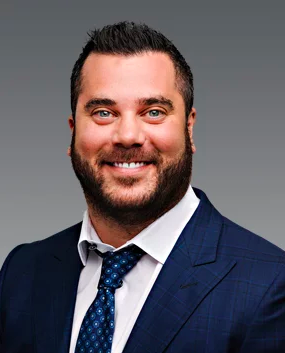
Drawing from an array of experts and resources offered by Canaccord Genuity Wealth Management, Dubin Wealth Management, which Shane established in 2012, offers clients the structure and support of a large financial institution along with an independent, personal and client-focused service.
We sat down with Shane to discuss his leadership style and to answer some common questions he gets from clients about estate planning.
What does leadership mean to you?
Shane Dubin: Leadership to me means being an expert in your field and having the ability to relay that knowledge to your clients. Building on portfolio management expertise, I pride myself on a combination of accountability, proactivity and genuine concern for the client’s that have entrusted me with their financial futures. I am a Chartered Investment Manager and hold a range of licenses and certifications, which means I have studied and understand what I am recommending to clients. For me, those are the basics of strong leadership.
One of your areas of expertise is Estate and Trust Services. Why is it important for people and families to establish a will?
Shane Dubin: Dying intestate (without a Will) results in the province distributing your assets according to preset rules, which may not be what you would intend. Administrative delays are often the norm, and if you have no next-of-kin, all your assets will revert to provincial coffers. Whether your estate is large or modest, an estate plan should be part of your wealth management strategy.
What’s one of the most common questions your clients ask you about estate planning?
Shane Dubin: Clients often ask how often they should make updates to their will.
Certain life events trigger the need to update your will and other estate planning measures. Given that conditions are always in flux in everyone’s life, it is also important to review the terms of your Will regularly, and especially whenever there are major “life changing” events. These might include a divorce or marriage, the death, marriage or divorce of a beneficiary, or the need to appoint a new executor. Indeed, scheduling such a review every three to five years is a prudent idea to keep your will up-to-date. Discussing and building your estate plan with the right person and appropriate professionals can help you meet your objectives and provide you and your loved ones with peace of mind.
That brings me to the question of estate taxes. Is this something you discuss with all clients?
Shane Dubin: In Canada, we are fortunate to not have an additional estate tax, however this does not mean your estate will have no taxes to pay. Upon death of a taxpayer in Canada,
an estate is subject to the following: income tax from deemed disposition – and – provincial and territorial probate fees. A well-constructed estate plan can help to ensure that taxes are kept to a minimum and more of your assets will be left for your heirs.
What are the steps to creating a will and how long does it take?
Shane Dubin: The creation of an estate plan should not be a grueling task; however, it does take some time and resources to accomplish it with confidence. Given the varying level of complexity with consistently evolving changes in laws and taxation, we recommend working with a team of specialists to create a comprehensive plan.
Making a valid will can be as simple as handwriting a document (referred to as a holograph or holographic Will). However, legal requirements vary by province and, indeed, some provinces do not recognize their validity. Alternatively, you can purchase a will kit. While these may be satisfactory for simple situations, it may not be appropriate for most situations. You should recognize that wills are legal documents. As such, the wording must be precise to ensure there are no disputes as to interpretation. It is best to contact your Investment Advisor to create a personalized plan that meets your individual needs.










